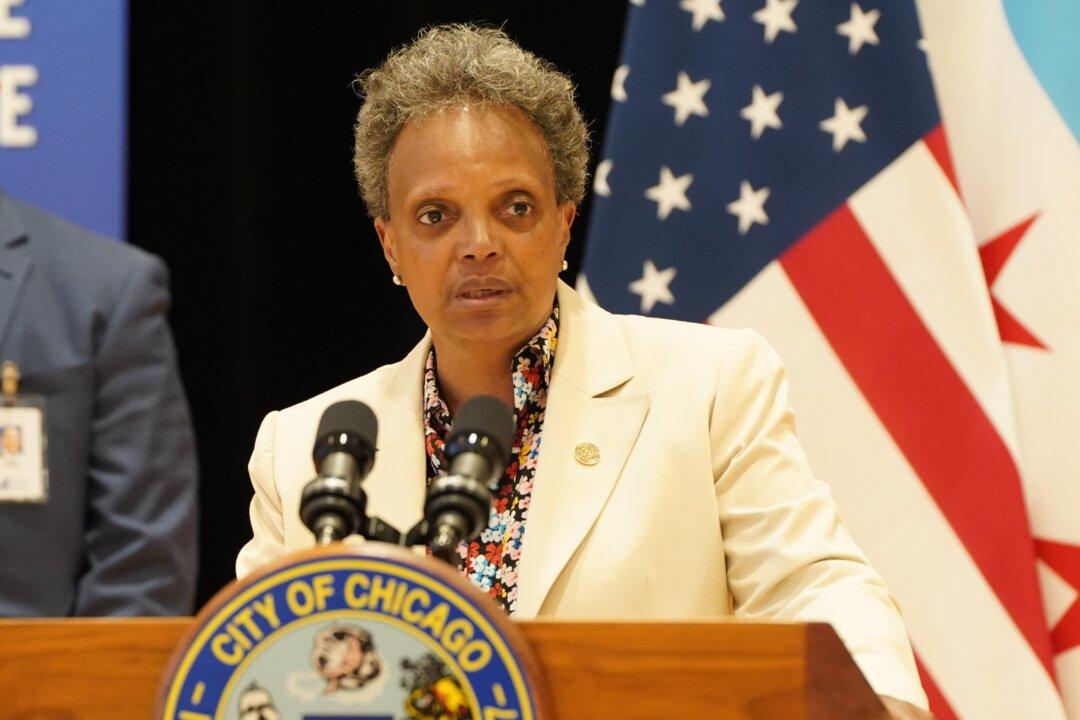Chicago Mayor Lori Lightfoot on Tuesday introduced a new ordinance that would allow the city to target gang leaders by suing them and seizing their assets.
The proposal, known as Victims’ Justice Ordinance, would authorize the city to file a civil complaint against gang members who knowingly engaged in two or more gang-related criminal offenses within five years of each other. At least one of them must be a felony involving profit-driven gang violence.





